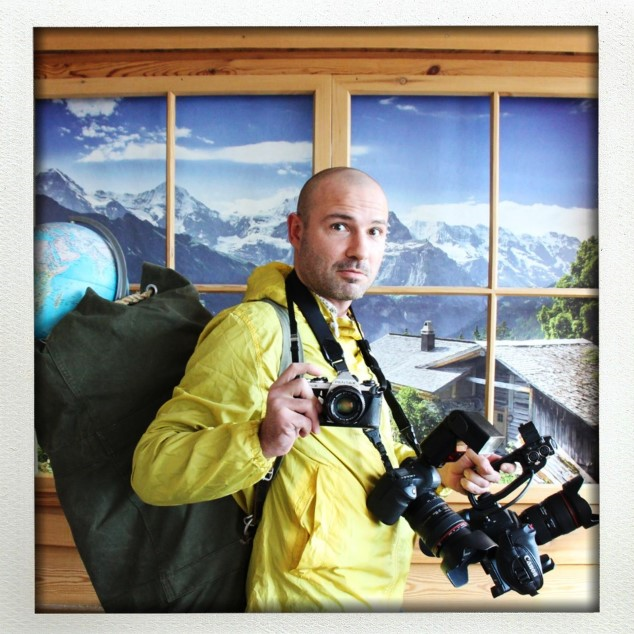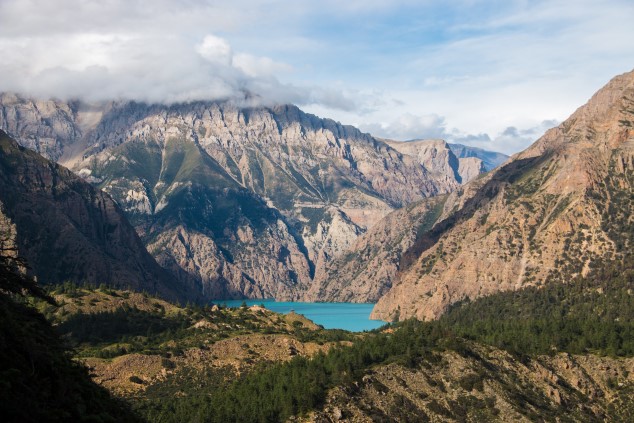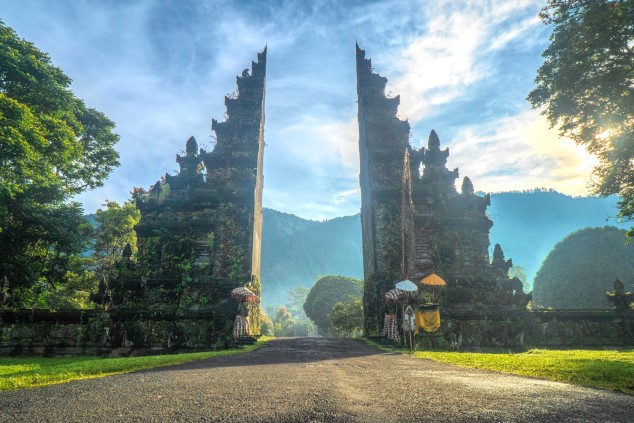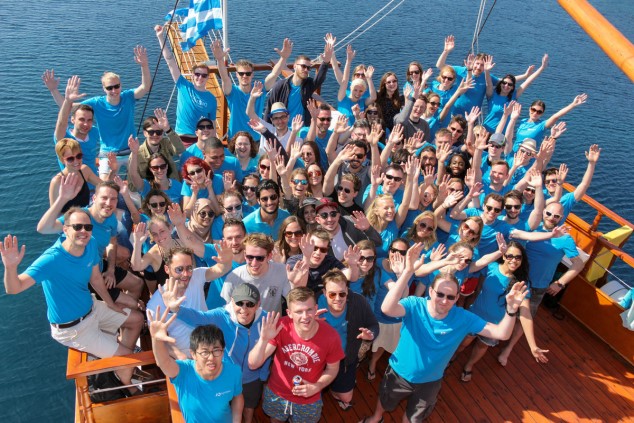In the series “Job Profiles”, we talk to various members of the InterNations team about their position and the work they do.
For this post, we had a chat with Dennis, our resident videographer and himself an expat from Ukraine.

Can you briefly describe your job at InterNations?
My official job title is “Videographer / Media Designer”, and I’ve been working here since February 2017 — that’s almost three years.
At InterNations, I’m the go-to person for everything regarding photography and especially for videos. As a one-man team, I’m responsible for any task you can think of, as long as it’s part of the video production cycle, starting with pre-production and the ideation phase. I’m involved in brainstorming ideas for a new video project, setting up the lights, shooting the scenes, and recording the sound. I also take care of the entire post-production — editing, sound, titles, animation, color-grading, and so on.
I may also need to download stock footage and make it look like a part of the movie I’ve filmed myself. For example, we once produced a short video in which we wanted to show three expats in three different places around the globe. We actually shot some of the scenes in Turkey and recorded an interview with an InterNations member here in Munich. But then we had to pretend that one of our interviewees was living in Japan at the time, and so I had to make the neighborhood around Munich Central Station look like Akihabara in Tokyo.
Eventually, I upload the finished product to our video channels. Usually this job is done by a few more people!

What kind of video content do you create for our team?
I basically produce short picture films that combine live-action footage with voiceovers and interview scenes. I’m attached to various projects from different teams that require video content, trying to come up with one or several videos for each specific project.
For instance, I work a lot with Anastasiya, our Learning & Engagement Business Partner. Together, we interview all the InterNations Ambassadors and Consuls — the members organizing our official events and activities — who come to our office here in Munich. Then, we turn these conversations into a story, which is a mix of each of them telling us about their life as expats and them sharing advice with their community. I also produce recurring video content, such as the yearly Expat Insider video promoting the latest results of our expat survey or the annual Thank You Project to wrap up the year for our Ambassadors and Consuls around the world.
For the Community Engagement Team, I’m currently filming welcome videos for the community engagement specialists, so they can introduce themselves to the members they’ll be in touch with. I’ll also be helping Erin, our Social Media Manager, to produce new video content we can share on the company’s Instagram account. And, of course, there’s the internal holiday video to be featured at the team meeting before Christmas.
Have you ever had the opportunity to shoot on location outside Munich?
Unfortunately, I don’t get to travel nearly as much as I’d like to, except for the times I filmed during our team trips to Chalkidiki (Greece), Maresme (Spain), and Agrigento (Italy) over the past three years. Earlier, I mentioned going to Istanbul for a shoot, and I also had the opportunity to attend an InterNations Activity with Caro — our Team Lead Public Relations — in Dubai.
We joined a group of members camping in the desert — that was a very nice shoot! It was rather cloudy, so we didn’t get to see either the sunset or the sunrise, or the starry night sky over the desert, but still, with the dunes, the campfire, and lots of smiling faces, it was a pretty great setting.
What’s your favorite video from your time at InterNations?
As far as big video projects go, the Wherever in the World You Go video was definitely a highlight. I’ve already explained what a challenge it was to incorporate the stock footage from Tokyo. No one has complained about it so far, so I guess it looks authentic enough. The video was shown at the official XING Kick-Off Event in 2018 before an audience of more than 1,000 people from all the New Work SE companies, and it’s probably one of the most prominent videos on our Vimeo page, too.
And what do you like best about video production in general?
What I love best is the filming itself. Ideally, I’d just shoot the video and leave the editing to someone else. Going through hours and hours of footage to trim down five hours of shooting to 15 seconds of content isn’t exactly my idea of fun.
I think my preference for the filming part goes back to my life-long interest in photography. I also enjoy working with people, who I think are infinitely more interesting to portray than inanimate objects. You need to make them feel at ease in front of the camera, so you can show them at their best. What appeals to me so much about making videos is that it’s a fusion of highly technical skills and intangible people skills. Even if your camera work, your lighting, and your sound are perfect, if you don’t succeed in making the person in front of the lens feel comfortable, your video will — to be quite frank — still look like crap.
How did you get into video production? Did you study filmmaking, for example?
I actually have three degrees in three different fields — IT, economics and management, and movie production — and only one of them is related to my current job. I guess I just get bored easily: After I obtained each degree and worked in each particular field, I realized that it wasn’t something I really want to do for the rest of my life, and so I went on to something new instead.
But I’ve been into photography as a hobby ever since I was a teenager, thanks to my dad, a physicist. He owned plenty of optical instruments, including several microscopes and cameras, and he taught me everything he knew about black-and-white photography. I’ve always loved the play of light and darkness, as well as the challenge of creating appealing visuals, but I never thought I would end up doing it professionally.
After my last degree, I started my own small business for translating software and movie scripts. I used to produce the translation sheets for voice actors, and that’s how I got into a post-production facility in Ukraine. After that, I worked as a bidding producer for a while — that’s a very specialized management job in video production, which is all about estimating the costs for commercials.
At that stage in my career I thought I would never be able to compete with those highly rated (and highly paid) directors and cinematographers who could easily charge 5,000 or even 10,000 EUR per shooting day for their skills and experience. But my hobby as a photographer and videographer grew little by little, and I started taking on some freelancing jobs. That’s how I ended up doing it full time after all.

Did you move straight to Germany from Ukraine?
No, before applying at InterNations, I’d been living and working as a freelancer in South and Southeast Asia for about three years. From Ukraine, I moved to Nepal, then to India, and on to Malaysia, Vietnam, Cambodia, and finally Indonesia.
Wow, that’s quite the itinerary. Which of those places did you like the best? And what did you do there?
That’s a very tough call! I think Nepal and Bali were my personal favorites. In Nepal, I went hiking in the Himalayas, for example, on Annapurna and Dhaulagiri. Everything is pretty spectacular as soon as you reach a certain altitude. Bali is simply amazing in a very different way. Though it’s a volcanic island, where you can spend most of the year under a heavy layer of clouds, if you live in the central mountains, it’s just a 20-minute ride to the coast, and there you can go swimming and surfing and just enjoy the tropical sunshine.
In between traveling the region, I was filming off and on, as well as doing some remote freelancing jobs. In Bali, there are lots of YouTubers and other creative people with a reasonable amount of income, such as travel bloggers and influencers, who come to the island and stay there for a few months or even for a couple of years. Most of them will need some support from a professional photographer or videographer at some point. So, I was able to combine work and travel: as the cost of living is also fairly low in most of these countries, you only need to do one gig to get by for another couple of months.
But as cool as this might sound, places like Bali aren’t big video production hubs. If you want to boost your career in this field, you have to move sooner or later to a major city in a western country — somewhere in North America or Europe. After a while, getting a steady job and applying for a visa in an EU member state seemed like a good idea. I was originally looking for vacancies at video-centric companies, but then the ad for InterNations was literally delivered to my inbox by one of the job aggregators I subscribed to. I made a nice introduction video for my application, which seems to have just “clicked” with the team, and that’s how I came here.

But now you’re going to leave InterNations. Can you tell us why and what you’ll be doing next?
The CEO of my new employer reached out to me on LinkedIn, and as comfortable as I am at InterNations, I would have been foolish to say no. I think I’m also ready for a new challenge. To paraphrase a famous movie, “they made me an offer I couldn’t refuse”!
In February, I’ll be starting in a similar position at Carly, a start-up specializing in car diagnostics apps both for individual consumers and for the B2B market. They’ve just begun to develop their own video content, and I’ll be building their video production and workflows from scratch, the same way I did at InterNations. It’s going to be lot of hard work, but I’m looking forward to it.
So, does this mean you’ll be moving again?
No, though Carly also has an international work environment, their office is based in Munich, too. I’ll be staying in town for the foreseeable future.
What do you think is the most important skill the next videographer at InterNations should have?
Earlier I talked about why it’s essential to have both technical expertise and people skills. Apart from that, I think the most important skill for any videographer is to never stop learning, discovering new things and learning new tricks.
I study a lot — I don’t know how many hours a week — to stay on top of the industry. But once you’ve reached a certain skill level, the main problem is sifting through all the people on YouTube who don’t know what they’re talking about to find someone who can teach you something new. Most of the real working professionals are too busy doing their own thing to share their knowledge online for free.
In the past three years, one of my personal highlights was attending a three-day filmmaking workshop in London. It was sponsored by Arri, a Munich-based company and one of the global brands for filming equipment, and it was hosted by a lighting director / gaffer at the BBC with about 40 years of experience under his belt. InterNations agreed to fund half of the costs for this workshop, so I got to ask him all the questions I could think of. Since he’d been in the industry for so long, he knew a lot — not just about lighting, but also about related fields, such as cinematography. It was a truly eye-opening experience, and it was worth every single penny!

Last but not least: What are you going to miss most about InterNations?
My fantastic colleagues. Even though I’m a one-man media production team, videos are never made by just one person, and I wouldn’t have been able to do my job without all the support from the team members in my own department and the other people I collaborate with.
If you are interested in following in Dennis’s footsteps, have a look at our job ad for his position. We’d really love to hear from you!
Image / video credit: InterNations / Pexels